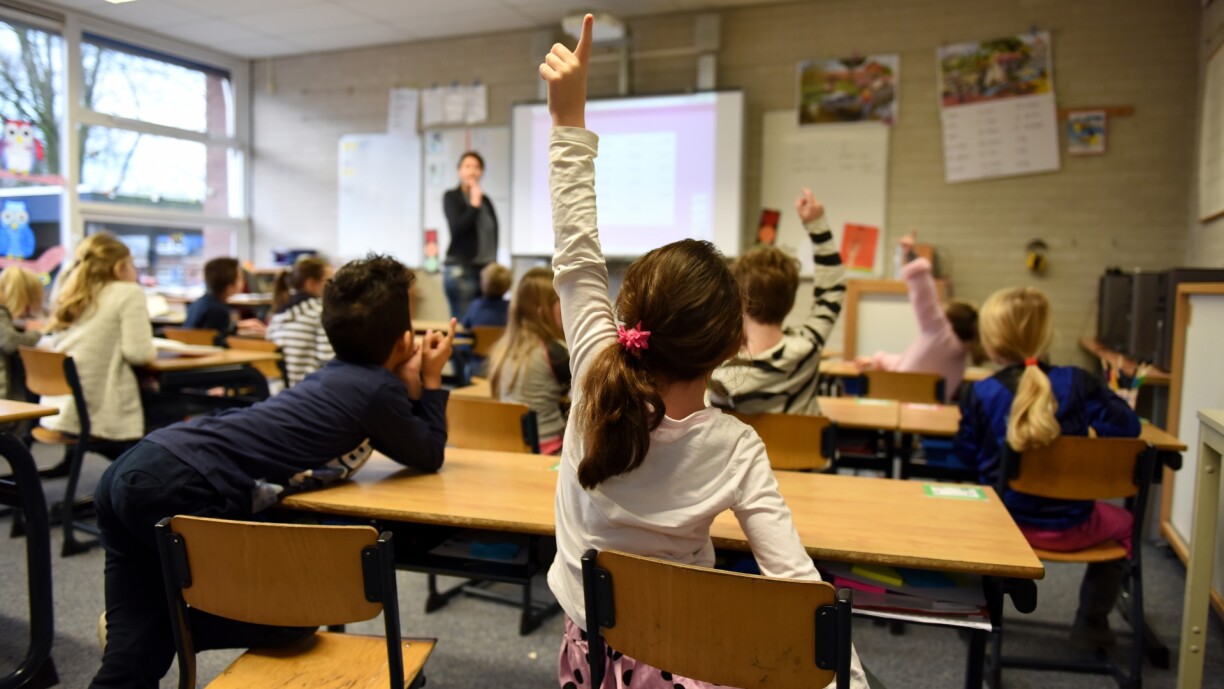
LGBTQIA+ identity and rights are themes not to be discussed openly in school – that is the opinion of a petitioner, who in less than a week has gained all 4,500 signatures needed for the petition to be discussed in the Chamber.
Human rights associations, especially LGBTQ+ right groups, have reacted with outrage after the petition requesting the prohibition of teaching LGBT-related topics to minors was published.
The petition advocates for removing LGBTQIA+ themes from educational materials for minors, stressing that families should have the freedom to handle these issues based on their personal beliefs and the developmental needs of their children. The petitioner is worried that early exposure to these topics might negatively impact the psychological and educational growth of young students.
The author of the petition explains that its intention is not to discriminate against or incite hatred towards the LGBTQIA+ community. Instead, the aim is to “make sure that education and discussions about sexual orientation are consistent with family values and suitable for the psychological development of minors”.
However, how are these themes included in the curriculum?
RTL Today reached out to the Ministry of Education and SCRIPT with this exact question.
Luc Weis, director of SCRIPT, explained that “it is not entirely clear to [him] what the petitioner is referring to. The LGBTQIA+ topic is not explicitly mentioned in the programs of the Luxembourg school”. The Ministry of Education confirmed this as well to RTL Today. Hence, there is uncertainty regarding the petition’s goal.
Starting in the 2016-2017 school year for secondary education and the 2017-2018 school year for fundamental education, a new course titled “Vie et Société” (Life and Society) replaced religious instruction, as well as moral and social training.
This subject aims to provide students with knowledge and understanding of various societal issues, including ethics, citizenship, and cultural diversity, promoting critical thinking and social responsibility.
In secondary school, while there are opportunities to address questions surrounding the LGBTQIA+ theme, the main learning objectives of the subject “Life and Society” are outlined in the curriculum as: “Perceive cultural, ideological, and religious expressions and orient oneself in society: The students approach societal diversity with openness and tolerance.” The focus is not on specific topics but rather on developing a skillset for future daily life.
Read also: Opinion - won’t someone please think of the children?!The secondary school curriculum, outline goals such as “strengthening coexistence and cohesion in a multicultural society” and state that “in order to find their way in society and to be able to communicate with others, children and young people need ‘access to the culture in which they live.’”
These objectives are similar for primary school, where they emphasise critical thinking on self-esteem, puberty, recognising potential risks, and more.
In summary, this course is designed “to enable a plurality of values, cultures, worldviews, and religions” in the students.
Regarding classical science courses, the approach remains consistent, with students in Cycle 4 of primary school focusing more on developing skills than on content.
In natural sciences classes, children will learn to express their views, understand basic facts about the body and puberty, continue to develop their self-esteem, and recognize and avoid risks related to sexuality and gender-based stereotypes. The overall objective is to cultivate critical thinking skills.
In secondary classical and general education, starting from 7th grade (12-13 years), the biology or natural sciences curriculum primarily focuses on biological processes related to sexuality. This includes studying the reproductive cycle, sexually transmitted diseases, and contraception, specifically under the “Responsible Partnership” theme in the 5th grade classical curriculum.
Furthermore, within the 5th grade general science courses, one of the five learning goals in the thematic block ‘Human Sexuality’ provides an opportunity for students to ask questions about LGBTQIA+ topics and teachers to address them.
Didactic materials included in the programs ensure these topics are handled appropriately and with a solid foundation. It is crucial that values of tolerance and openness towards diversity are conveyed within the broader context of “Sexual and Affective Education” in an age-appropriate manner, without overwhelming students or promoting any ideology, explains Wies.
In September, SCRIPT will publish a pedagogical guide titled Sexual Education in Primary School – Teacher’s Guide with Useful Information on Sexual Education, Adult Attitudes, and Various Topics. This guide follows the same approach that ensures didactic materials allow topics to be handled appropriately.